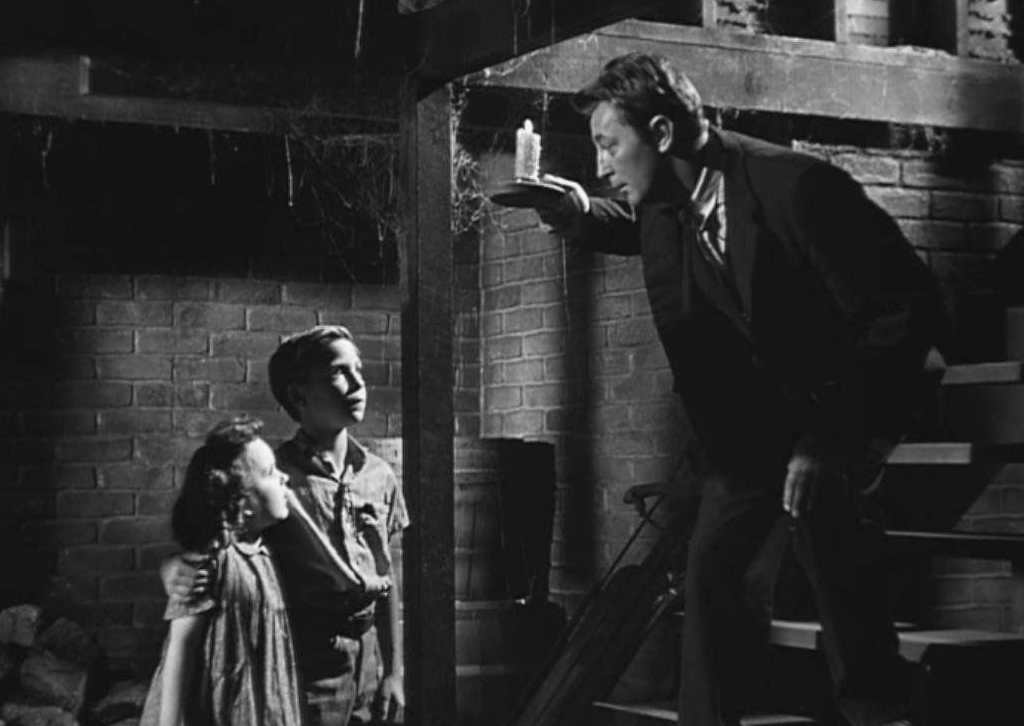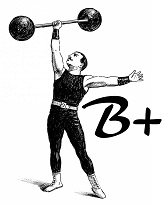“The Night of the Hunter” is 7/8 of a masterpiece. Director Charles Laughton and Screenwriter James Agee, Composer Walter Schumann, and Cinematographer Stanley Cortez collaborated very closely due to Laughton’s openness to and appreciation of their contributions. Laughton brings their respective creative visions together to create a sui generis film that is so close to being a masterpiece that the last 10 minutes pierced my heart with the barbed arrow of disappointment.
Today, “The Night of the Hunter” is usually classified as a film noir because of Cortez’ deft chiaroscuro, employing the deepest blacks against pearly whites. But, the film is equally a psychological thriller about the archetypal battle between good and evil. And, yet again, a socio-political commentary about the suffering of children during The Great Depression. Finally, it could be called religio-ploitation where The Bible is variously used as a sword and a shield. “The Night of the Hunter” is the inhabitant of many categories but holds primary residence in none. It is a citizen of all genres.
The story is simple. A bogus preacher, played with sexually potent loathsomeness and sublime devilry by Robert Mitchum, travels the country during The Great Depression, marrying, murdering, and robbing widows. His prime motivation for his crimes is not really the money: it is the powerful sexual gratification and God-like omnipotence he experiences in the act of killing. The money and God are merely his excuse. After killing their mother (Shelly Winters), the “preacher” pursues her two small children through the countryside, knowing the children hold a secret.

The story arc is classic. It is rather the style that sinks the viewer into a subconscious abyss beyond sympathy, beyond anxiety, and into the liminal state of being a fully immersed witness of the children’s heroes’ journey and the hound of hell that pursues them. This central journey into the underworld is bookended by more realistic, psychological scenes deeply inflected with Jungian psychology.
The protagonist is grade schooler John, who is tasked by his father with protecting his five-year-old sister and with protecting the secret of where $10,000 in stolen money is hidden. John bravely carries the burden of this secret but it weighs far too heavily on his thin, young shoulders.
Throughout the entire film Laughton is building his way to John’s catharsis (and our own) but muffs it at the last minute. Ye gods!
Nonetheless, this is a great film. If you can take more tension also watch a similarly-themed stalker film, “No Country for Old Men” (2007).


